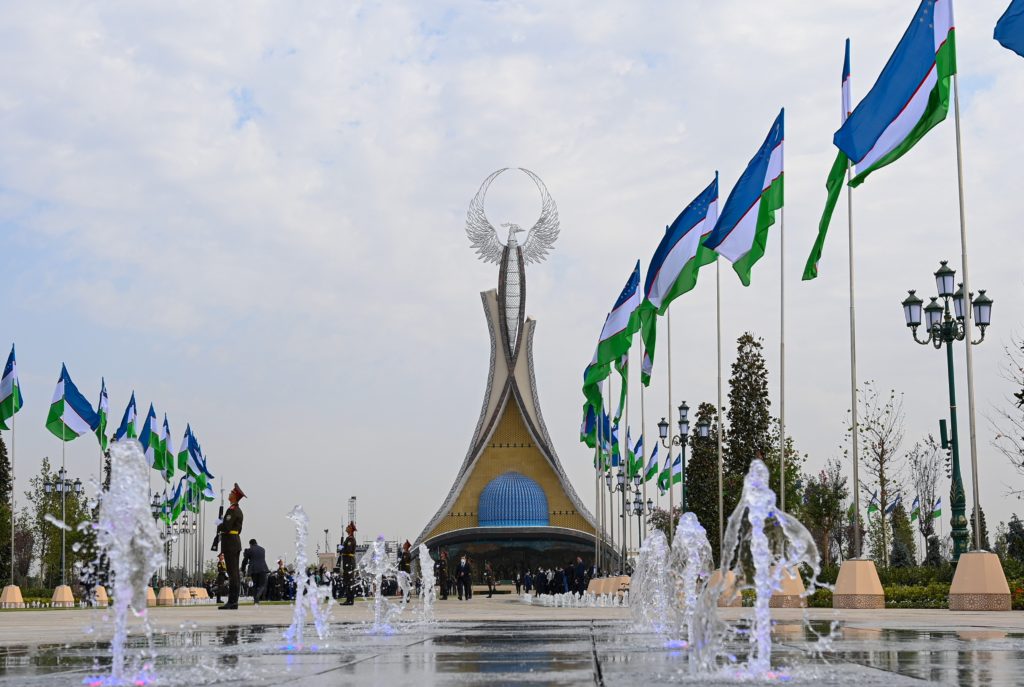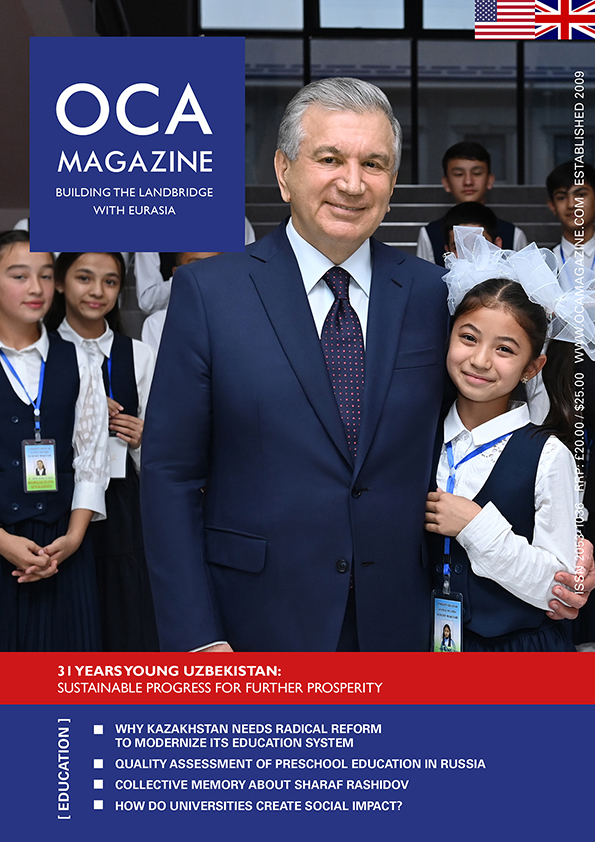31 YEARS YOUNG UZBEKISTAN: SUSTAINABLE PROGRESS FOR FURTHER PROSPERITY

On september 1, 2022 Uzbekistan celebrated the 31st Anniversary of its Independence. From the very beginning the nation has set an ambitious goal – to become a developed, sustainable, democratic state. In a relatively short period, profound structural and institutional transformations were carried out that laid the foundations of a multi-structured economy and principles of secular, democratic governance.
Launched in 2017, the unprecedented large-scale reform program of the newly elected modernist President Shavkat Mirziyoyev has created a new milestone in the nation’s development. New strategic priorities have been established in the spheres of public administration, the rule of law and human rights, economic liberalisation, social policy and foreign relations. A long-time inward-looking country has become more open and active.
As a result, in just five years Uzbekistan has achieved a lot. For example, Uzbekistan was elected to the UN Human Rights Council, adopted a National Human Rights Strategy, a Gender Equality Strategy and ratified the UN Convention on the Rights of Persons with Disabilities. Forced labour and child labour were completely eradicated in the country, ending an international boycott of Uzbekistan’s cotton and textiles.
The foreign exchange market was liberalised. For the first time, Uzbek banks and enterprises received international ratings and entered the world financial markets, and international bonds in national currency were also issued on world markets. The country was admitted as a beneficiary in EU’s GSP+ and the UK’s Enhanced GSP Scheme. Foreign trade turnover increased by 70% – to more than $42 bln in 2021. Exports rose 40%, while imports doubled.
Open, pragmatic and humanistic foreign policy resulted in the creation of a completely new atmosphere of constructive cooperation and good-neighbourliness in Central Asia, and expanding relations with the world. A visa-free regime was introduced to the citizens of 90 foreign countries and people from around the same number of states can now use a simplified visa procedure. In this way, the country has become the most open state in the region.
Broad public support for President Mirziyoyev’s reformist course ensured his re-election in 2021 and adoption of the Development Strategy for New Uzbekistan on an even deeper and wider modernisation of the country. Ambitious goals were set for 2030, such as increasing GDP per capita by 60%, joining the ranks of upper middle-income states, and pouring $120 billion into the economy, including $70 billion in FDI.
A focus on human rights and dignity, a vibrant civil society, a welfare state, sustainable, environmentally friendly and inclusive development have been put at the heart of the transformation. To consolidate these important values a major round of constitutional reform was initiated.
Our citizens have taken an active and direct part in shaping the new Constitution and have been active in a nationwide discussion. Tens of thousands of proposals from people were considered by a Constitutional Commission, formed from MPs, senators, representatives of civil society and other sectors. The President has also proposed several initiatives for inclusion into the constitution, including abolition of the death penalty, establishment of so-called Miranda rights and Habeas Corpus principles.

Human capital development, as the cornerstone of any modernization and innovation-based economic success, has become a strategic priority in Uzbekistan where more than 60% of its 35 million strong population are under the age of 30.
The country is actively implementing a system of lifelong education and seeking to build a knowledge economy, which includes the restructuring of the education system, advanced training of personnel, integration of education with science and business.
Enrolment of children in preschool education has more than doubled since 2017, exceeding 1.8 million people (67.2% of the age group). The number of preschool educational organizations has increased five-fold – up to almost 28,000. By 2030, enrolment in the sector will increase from 67.2% to 80.8%.
In public education the main focus is on improving the qualifications of teachers, introducing innovative technologies in scientific and technical education through a network of so-called Presidential Schools operating under the British Curriculum. Specialized schools with in-depth study of ICT and the hard sciences have been established, and a fully inclusive education system is being introduced in schools.
Over the past five years, 55 new universities have been created in the country bringing the total to 162. Along with branches of 30 foreign universities, enrolment in higher education is projected to reach 50% by 2030 (compared with 9% in 2016, 28% in 2021). The number of students studying abroad through the “Hope of the Nation” Foundation is growing fast. The transition to a “digital university” model has begun, and a new system of vocational education has been implemented. Through introducing standards of excellence and international educational programs, Uzbekistan strives to become a regional hub of higher education.
Retrospectively, Uzbekistan is celebrating its 31st anniversary of independence with a solid record of achievement. The country has secured the status as a significant regional power, and its comprehensive reforms, which have become irreversible and enjoy public and international support, are the driver for further development.
Even though Uzbekistan seldom generates front-page news in the UK, over the past three decades a solid base for comprehensive bilateral cooperation has been developed. Importantly, the foundations for this were laid even earlier, over 600 years ago when Amir Timur, commonly known as Tamerlane, ruler of the vast Timurid Empire, and King Henry IV of England were exchanging correspondence, both seeking friendly relations and expanded trade links.
In the modern era, bilateral relations received a “second wind” from Uzbekistan’s reform programme. The UK’s Global Britain strategy has added to the momentum. As a result, new possibilities for cooperation have been opened up and the pace of change has grown ever more intense. For example, Uzbekistan became the first Central Asian state to sign with the post-Brexit UK a bilateral political and cooperation deal – a Partnership and Cooperation Agreement. Last year, Uzbekistan also gained trade beneficiary status in the UK’s GSP Enhanced Framework, becoming the first country to qualify for that after Brexit.
The desire to develop trade and economic ties, reflected in the correspondence between Amir Timur and Henry IV, is today complemented by a broad range of other topics: from political dialogue and addressing global challenges, to the green economy, education, and culture. It is a close friendship which is valued enormously in Uzbekistan that looks forward to further broadening and strengthening its partnership and friendship with the UK.
Said Rustamov
